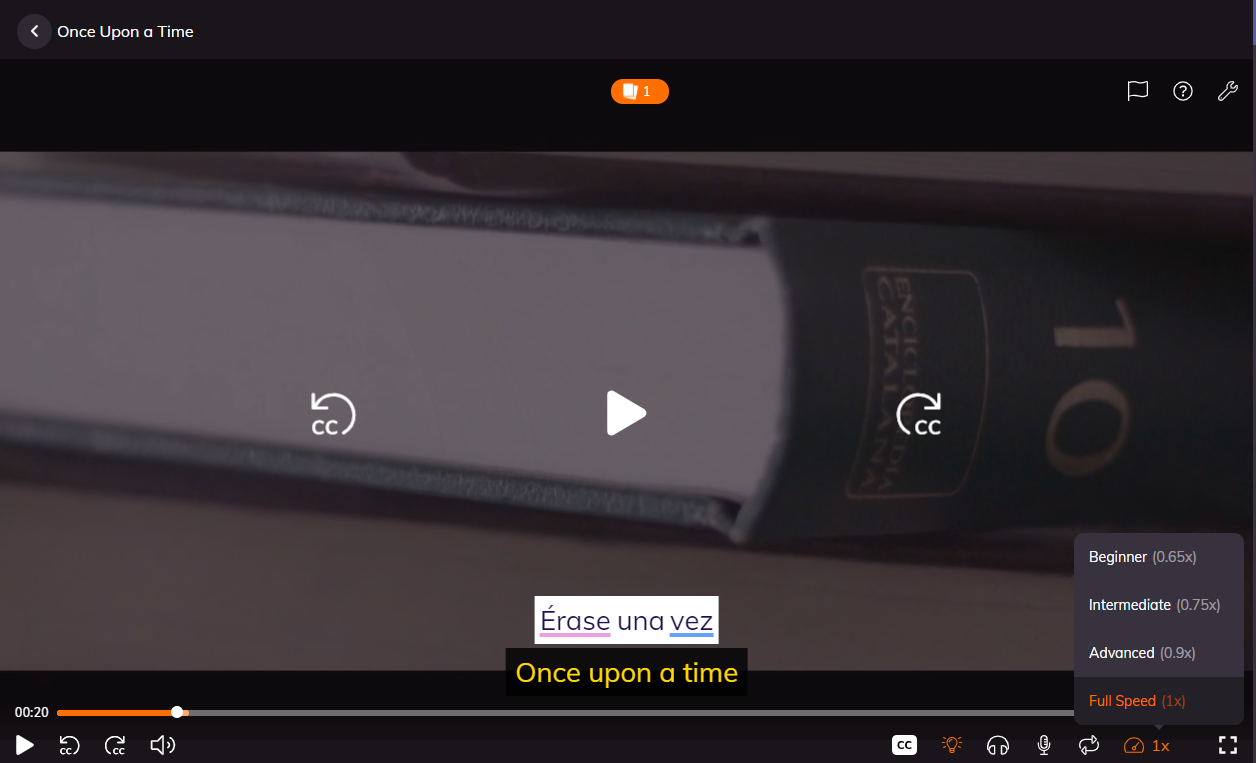Mastering a New Language in Record Time
written by: Krystof-Sandor Harfst
Table of Content
Learning a new language is an incredible and rewarding experience that can benefit you in many ways. The ability to communicate in a language other than your native tongue can open doors for new job opportunities, improve your cognitive skills, and enhance your travel experiences. While mastering a language may seem like a daunting task, it's possible to achieve this goal in record time with the right approach.
Importance of Language Learning
Language is a crucial aspect of human communication and interaction. It enables us to express our thoughts, ideas, and emotions, and to understand and connect with others. Knowing multiple languages can expand our understanding of different cultures and perspectives, and help us build relationships with people from around the world. In today's globalized world, language skills are becoming increasingly essential for success in many industries.
What it means to Master a Language
Mastering a language means more than just having a basic understanding of its grammar and vocabulary. It involves being able to communicate effectively in a variety of situations, from casual conversations to professional settings. It also involves understanding the nuances of the language, including its cultural context, idiomatic expressions, and colloquialisms. Achieving fluency in a language requires dedication and consistent effort.
The Benefits of Mastering a Language Quickly
Learning a language quickly has many benefits. It can save you time and money, as you won't need to spend years studying a language to achieve proficiency. Being able to communicate in a new language quickly can also boost your confidence and self-esteem, making you more comfortable in social and professional situations. Additionally, it can open up new opportunities for travel, work, and personal growth. By mastering a language quickly, you can start reaping the benefits of your language skills sooner.
Create a Plan
If you want to master a new language quickly, you need to create a plan that works for you. Here are three essential steps to creating an effective language learning plan:
Set a clear goal
Setting a clear goal is crucial to achieving success in language learning. Determine what level of proficiency you want to achieve and set a deadline for yourself. Be specific about what you want to accomplish, such as being able to hold a conversation in the language or passing a language proficiency exam. Having a clear goal will help you stay motivated and focused on your progress.
Choose the right resources
Choosing the right resources is key to making progress in your language learning journey. There are many options available, including textbooks, apps, podcasts, and online courses. Consider your learning style and preferences when selecting resources. For example, if you prefer interactive learning, an app like Duolingo may be a good choice. If you enjoy learning through reading, a textbook or online course may be better suited to your needs. Experiment with different resources to find what works best for you.
Establish a regular practice schedule
Consistency is essential when learning a new language. Establish a regular practice schedule that works for you and stick to it. Aim to practice for at least 30 minutes every day, whether it's through reading, listening, or speaking. This will help you build a habit of language learning and make progress towards your goals. Set reminders or alarms to ensure that you don't forget to practice, and try to make language learning a part of your daily routine.
By setting clear goals, choosing the right resources, and establishing a regular practice schedule, you can create a plan that will help you master a new language quickly and effectively.
Immerse Yourself
Immersing yourself in a language is one of the most effective ways to learn it quickly. Here are four ways to immerse yourself in a new language:
Watch TV shows and movies
Watching TV shows and movies in the language you are learning is an excellent way to improve your comprehension and vocabulary. Start by watching with subtitles in your native language, and gradually switch to subtitles in the language you are learning. This will help you to learn new words and phrases while also improving your listening skills.
Listen to music and podcasts
Listening to music and podcasts in the language you are learning is another great way to immerse yourself. Choose genres that you enjoy and find artists or hosts that speak clearly and slowly. This will help you to pick up new words and phrases while also training your ears to understand the language.
Read books and articles
Reading books and articles in the language you are learning can help you to expand your vocabulary and comprehension. Start with simple texts and gradually work your way up to more complex material. Look up new words and phrases as you go, and make note of any grammar structures that you find challenging.
Find a language partner
Finding a language partner can provide you with valuable speaking practice and help you to improve your conversational skills. Look for language exchange programs in your community or online, and practice speaking with native speakers. You can also use online platforms like HelloTalk or Tandem to connect with language partners from around the world.
Practice Regularly
Regular practice is essential to mastering a new language quickly. Here are four ways to practice regularly:
Use flashcards
Flashcards are an excellent way to memorize vocabulary and grammar rules. Create your own flashcards or use online resources like Quizlet to practice regularly. Review your flashcards daily to help commit the information to memory.
Engage in conversation
Engaging in conversation is crucial for developing your speaking and listening skills. Practice with a language partner, a tutor, or a teacher, or find conversation groups in your community. Focus on using the language as much as possible and don't be afraid to make mistakes.
Take language classes
Taking language classes can provide you with structure and guidance as you learn. Look for classes in your community or online, and choose a level that is appropriate for your current skill level. Participate actively in class and use what you learn in your own practice.
Join online language communities
Joining online language communities can provide you with opportunities for practice and feedback. Look for groups on social media, language learning forums, or language exchange apps. Engage with other learners and native speakers, and ask for feedback on your writing and speaking.
Focus on Fluency
When learning a new language, it's important to focus on fluency rather than perfection. Here are four ways to prioritize fluency in your language learning:
Don't worry about perfection
Perfectionism can hinder your progress when learning a new language. Instead of focusing on getting everything right, focus on using the language as much as possible. Make mistakes, learn from them, and keep moving forward.
Work on building your vocabulary
Building your vocabulary is key to becoming fluent in a new language. Start by learning the most common words and phrases, and gradually expand your vocabulary over time. Use flashcards, apps, and other resources to help you memorize new words.
Learn common phrases and expressions
Learning common phrases and expressions can help you to communicate more effectively in real-life situations. Look for resources that provide lists of common phrases and expressions, and practice using them in context.
Practice speaking in real-life situations
Practicing speaking in real-life situations is crucial for developing your fluency. Look for opportunities to speak with native speakers, whether it's through language exchange programs, conversation groups, or classes. Practice using the language as much as possible, and don't be afraid to make mistakes.
Stay Motivated
Staying motivated is key to mastering a new language in record time. Here are four ways to stay motivated throughout your language learning journey:
Celebrate small victories
Celebrating small victories can help you to stay motivated and track your progress. Whether it's mastering a new grammar rule or learning a new word, take time to acknowledge your achievements along the way.
Keep a language learning journal
Keeping a language learning journal can help you to reflect on your progress and identify areas for improvement. Write down new vocabulary words, grammar rules, and phrases that you learn, as well as any challenges you encounter. Use your journal to set goals and track your progress over time.
Reward yourself for progress
Rewarding yourself for progress can help you to stay motivated and make language learning more enjoyable. Set goals for yourself, such as mastering a new grammar rule or speaking with a native speaker, and reward yourself when you achieve them. Treat yourself to a favorite food or activity, or give yourself a break from studying.
Find a language learning buddy
Finding a language learning buddy can provide you with support and accountability. Look for someone who is learning the same language as you and practice together regularly. Use your buddy to practice speaking and writing, and to provide feedback and encouragement.
Conclusion
Learning a new language can be challenging, but it's also incredibly rewarding. By creating a plan, immersing yourself in the language, focusing on fluency, and staying motivated, you can master a new language in record time. Whether you're learning for personal or professional reasons, the benefits of becoming multilingual are numerous. So why not start your language learning journey today? With the right mindset and resources, you can achieve fluency in no time.
Share this article!






